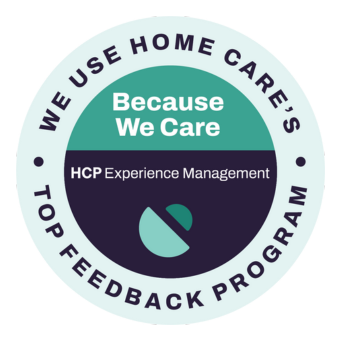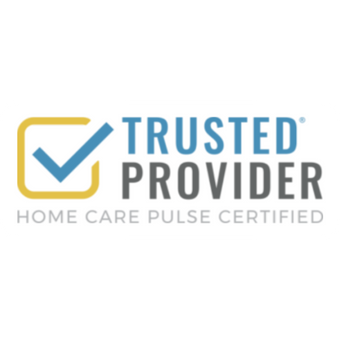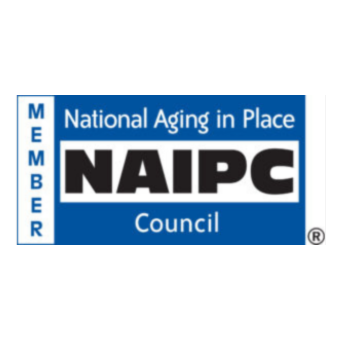As individuals in Raleigh age, their bodies undergo numerous changes, some of which can profoundly affect their vision. As a prime example, macular degeneration is a leading cause of vision loss among seniors. If not adequately addressed, vision changes caused by macular degeneration can impact reading, driving, and recognizing faces, making it difficult for seniors to manage their independence. Read on to learn more about macular degeneration and management tips and strategies for seniors dealing with this common eye condition.
What Is Macular Degeneration?
Macular degeneration, or age-related macular degeneration (AMD), is an ocular condition primarily affecting individuals 50 and older. The macula, located at the center of the retina, is responsible for sharp, central vision. There are two main types of macular degeneration: dry and wet.
Dry macular degeneration is the most common form, accounting for about 85-90% of cases. Dry MD typically progresses slowly and is characterized by the thinning of the macula and the accumulation of drusen (yellow deposits) under the retina. While less common, wet macular degeneration is more severe and occurs when abnormal blood vessels grow under the retina, leading to leakage and scarring.
While there is currently no cure for macular degeneration, early detection and management can slow its progression and help maintain quality of life.
Macular Degeneration May Cause These Vision Changes
The impact of macular degeneration on an individual’s vision can be significant, especially when not properly managed. As vision loss progresses, it can create challenges in everyday tasks. Initially, individuals may experience blurriness in their central vision, making reading or watching television more difficult. Over time, blind spots may develop, expanding and leading to a condition called scotoma. This central vision loss can occur while peripheral vision remains relatively intact, leading to “tunnel vision.”
Consequently, once enjoyable activities may become frustrating and challenging. Due to lost visual acuity, simple tasks such as cooking, shopping, or even recognizing loved ones can become daunting. As central vision deteriorates, individuals might rely more on their peripheral vision, which can cause depth perception issues.
In addition to visual complications, emotional well-being may also be affected. The fear of falling or experiencing an accident due to impaired vision can elevate anxiety and diminish one’s desire to engage in social activities. Individuals may feel isolated, withdrawn, or even depressed as they grapple with changes in their vision. As a result, it’s vital for seniors to understand the potential implications of macular degeneration and seek appropriate management to mitigate challenges.
Managing Vision Changes Resulting from Macular Degeneration: Tips and Strategies for Seniors in Raleigh
Family caregivers can play a pivotal role in helping aging loved ones manage macular degeneration. Here’s how to help an aging loved one with AMD lead a more active and fulfilling life:
Get Regular Eye Exams
Annual checkups from an eye doctor can help identify macular degeneration and monitor its progress. Early detection of vision changes allows for timely interventions, which may slow disease progression.
Utilize Visual Aids
Magnifiers, large-print books, and specialized glasses can significantly enhance one’s ability to read and perform tasks. Technology also offers various applications and devices for individuals with low vision, including screen magnifiers and text-to-speech software.
Enhance Lighting
Proper illumination can make a big difference for seniors with AMD. Install brighter bulbs in living spaces and task areas and consider adjustable lighting options to reduce glare. Positioning light sources behind the user can illuminate work areas without discomfort.
Modify the Home Environment
Keeping the home environment neat and clutter-free minimizes the risk of tripping and helps you locate items easily. Designating specific areas for commonly used items can also reduce frustration.
Use Contrast and Color
High-contrast colors and patterns can improve visibility. For example, wearing contrasting clothing or applying colored tape to stair edges and corners can make navigation safer and easier.
Embrace Emotional Support
For seniors with AMD, encouragement from loved ones to participate in social activities can help combat feelings of loneliness and isolation. Macular disease support groups can provide comfort through shared experiences in person or online.
Professional Home Care: Addressing the Daily Living Needs of Seniors with Macular Degeneration
When called upon, professional in-home caregivers can play a vital role in helping seniors manage the effects of macular degeneration, ultimately aiding them in maintaining their independence. Here are some impactful ways home care providers can deliver meaningful AMD support:
Personalized Care Plans
In-home caregivers collaborate with eyecare professionals and other healthcare providers to develop tailored care plans that address ADM-afflicted seniors’ specific needs and preferences. These plans can prioritize safety measures and daily routines and help manage medications and appointments, ensuring that care adapts as the condition progresses.
Assistance with Daily Activities
Caregiving professionals can assist with activities of daily living (ADLs), including bathing, grooming, and dressing. They can also help with household tasks like laundry, cooking, and grocery shopping, ensuring the client’s nutritional needs get met, which can help improve eye health.
Mobility Support
Seniors with macular degeneration often struggle to navigate their home environments. While there, caregivers can help clients safely get around their homes and community, providing mobility assistance and helping minimize the risk of falls. They can also provide transportation to appointments, activities, or social engagements, enhancing seniors’ quality of life.
Aiding in Vision Rehabilitation
Caregivers can promote access to vision rehabilitation programs that help clients learn new strategies to cope with vision loss. Rehabilitation services often include orientation and mobility training and can significantly boost confidence and independence.
Promoting Activities and Therapeutic Engagement
Engaging seniors with AMD in activities that promote cognitive and physical well-being can be incredibly beneficial. Caregivers can facilitate participation in hobbies, games, and social activities tailored to the individual’s visual capabilities. This therapeutic engagement improves physical health and helps combat depression and isolation.
Living Well with Macular Degeneration: What It Means for You
Living with macular degeneration presents unique challenges. Thankfully, with the right strategies and support, older adults can adapt to vision changes and continue to lead active and fulfilling lives. Employing practical solutions, including regular eye exams, visual aids, and maintaining social connections, empowers seniors with AMD to navigate vision changes effectively and manage their disease.
Furthermore, involving family members and professional in-home caregivers can enhance the AMD management experience, promoting seniors’ independence and quality of life. With patience, understanding, and proactive management, individuals with macular degeneration can embrace their changing vision and continue engaging in the world around them.
Flexible In-Home Macular Degeneration Support for Seniors in Raleigh
Helping an aging loved one with macular degeneration manage vision changes, including vision loss, can be overwhelming. When you need assistance, contact HomeChoice Home Care Solutions in Raleigh. As a fully licensed and accredited home care provider, our compassionate caregivers can step in and serve as an extended family in the home. We offer a comprehensive lineup of solutions tailored to your family’s needs, including Companionship Care, Personal Care, and Respite Care.
While assisting clients in Raleigh, Durham, Wake County, Johnston County, Wake Forest, Chapel Hill, and North Carolina, our agency’s focus is on maintaining their quality of life, dignity, self-esteem, and independence. For your added convenience, all our home care services can be individually personalized into an affordable package when and where you need them! To learn more about us, how we assist clients with macular degeneration or to schedule a consultation for someone in our service area, please visit www.homechoicehomecare.com now.








